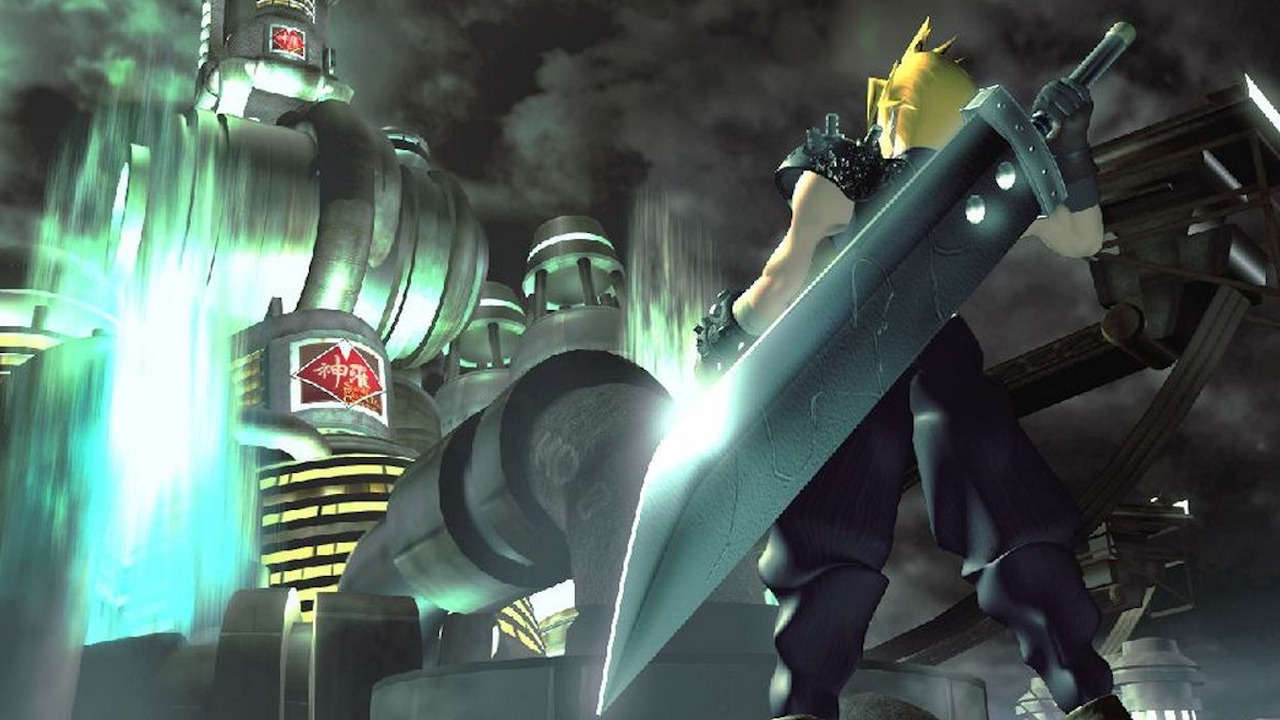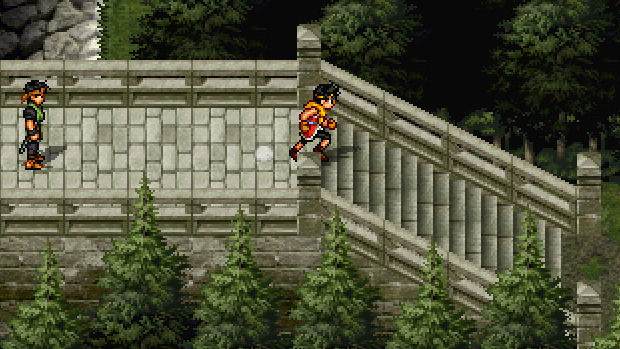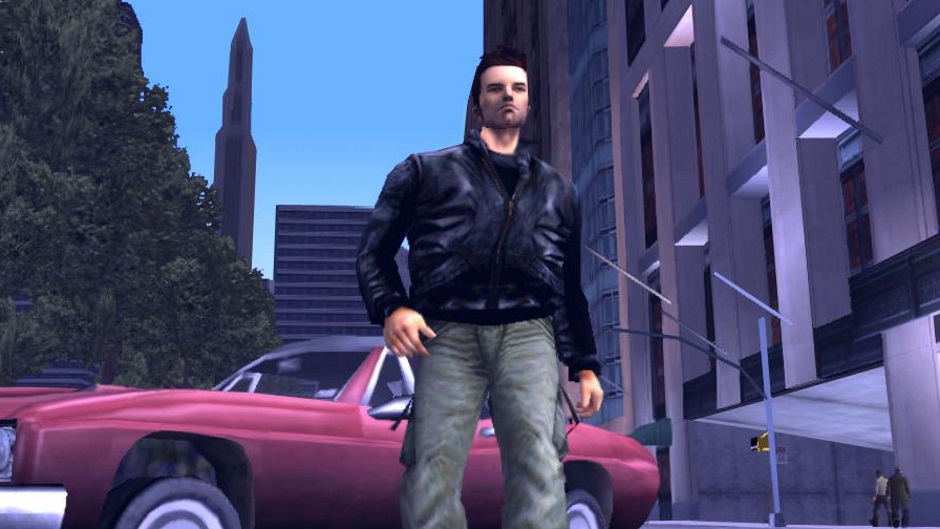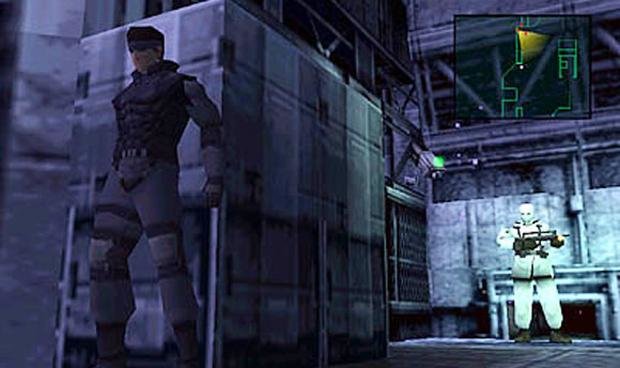The PS4 doesn't need PlayStation Now, it needs PS1 games

Sony boasts one of the most extensive, valuable, eclectic, and varied back catalog of titles in console gaming history. Its library of platformers, RPGs, action games, open-world adventures, and more are second only, perhaps, to Nintendo's own collection of classics (though you could probably convince me Sony's is better if you make a good enough case and give me a few beers).
Sony capitalized on a combination of nostalgia and historical preservation with its PS3 and Vita generation of hardware. The PlayStation 3 wasn't just a place to play all the latest and greatest games - it could also play nearly every single PlayStation 1 disc, and certain early models of the PS3 could even play physical PlayStation 2 games. Even if you didn't have discs, the PS3 had an extensive digital library of PS1 games and a smaller yet still substantial collection of PS2 games. You no longer had to spend hundreds of dollars on eBay for a copy of Suikoden 2; simply drop ten bucks and download it directly to your PS3, or take it with you on the go on the Vita. The whole process made buying and playing old classics easy and affordable, and often gave Nintendo's own Virtual Console a run for its money.
The PS4 has virtually none of that, and by ignoring its line of classic games, it's leaving money on the table. What the PS4 currently has are compromises; half-steps that give the illusion of a celebration of its history but are effectively hamstrung by their own implementation.

But it didn't always feel this way. Back at the PS4's unveiling in February 2013, Sony revealed that it was partnering with streaming service Gaikai to help build what would eventually be called PlayStation Now. It would be a revolutionary platform where players could stream PS1, PS2, PS3, and PS Mobile games from the cloud and beam them directly onto their TV at home. The shift from the custom architecture Sony had previously used toward a more universal x86 architecture necessitated this - short of slapping an entire Cell processor inside a PS4, emulating PS3 games is basically impossible with current technology, so cloud gaming sounded like the next best thing for being able to access old games on new hardware anytime and anywhere. PlayStation Now sounded like the future.
The reality is far less impressive. PlayStation Now costs far too much money ($20 a month compared to Netflix's $9.99), and is entirely reliant on the quality of your internet for a good performance - when it's working, it works well enough, but if your internet speed dips at all, video quality and input latency can make games virtually unplayable. Its library of games is also pretty pathetic. There are some quality PS3 games to play in there, but Now only offers a mere fraction of the full library. Also, PS1 and PS2 games, originally promised in the service's unveiling, are notably absent (and the less said about Sony's complete abandonment of the quirky PS Mobile platform, the better). PlayStation Now may be a more profitable and cost-effective way of providing PlayStation 3 games for PS4 (and now PC) gamers, especially considering the difficulty of directly emulating them on current hardware, but it's nowhere near the vision originally promised to us.

Almost in response to the tepid public reaction to PlayStation Now, Sony then began repackaging old PS2 games with special digital wrappers that would allow them to be bought from the PS Store and played on your PS4. If you bought these games digitally on your PS3, you'd have to buy them again; a bummer, but at least Sony could lean on the fact that it was adding trophy support and all of the PS4's network features (including the ability to play split-screen multiplayer online via SharePlay). But like PlayStation Now, Sony's line of PS2 on PS4 games feels half-baked, featuring a handful of older first-party games, most of Rockstar's output, and a few others that have been trickling out slowly since its inception in 2015. Because Sony actually has to put more work into these than simply uploading an emulated game and creating a store page, their roll-out has been so slow it makes Nintendo's conservative Virtual Console release schedule look like a downpour.
That's to say nothing about PlayStation 1 games, which Sony seems to have all but abandoned on modern hardware. Now, I won't even begin to speculate on the difficulties of bringing PS1 games to the PS4 or what kind of work it would take to make the versions of the games originally designed to run on the PS3, PSP, and Vita work on different hardware. What I do know is that, if I were a more unscrupulous person, I could find a PlayStation 1 emulator and get it to run on my PC or my tablet pretty easily. That it’s apparently impossible for Sony to move its extensive line of PS1 classics over to the PS4's digital marketplace seems absurd in the face of this.
Weekly digests, tales from the communities you love, and more

Sony, then, needs to do two things: it needs to cut its losses with PlayStation Now (or accept that it'll only be a home for PS3 games), and it needs to open the floodgates and bring old PS1 and PS2 games rushing onto the PS4. This isn't just to benefit people like me, who have likely spent hundreds of dollars rebuying old favorites like Xenogears and Crash Team Racing but would really prefer to never touch a PS3 again if they can help it. No, it's for the millions of people who have entered the Sony ecosystem for the first time with the PS4. With over 53 million consoles sold, many of them who either defected from Microsoft or picked up a PS4 as their very first console, there's a huge opportunity to allow a whole new generation of gamers the chance to experience Sony's breadth of classics, from Alundra to Final Fantasy 9 to Metal Gear Solid, for the first time.
Even though Sony is eating Microsoft's lunch when it comes to total systems sold, it would do well to take a cue from the Xbox's recent addition of backwards compatibility. Once dismissed as a luxury that was never going to happen, Xbox One owners are now getting a near-weekly influx of modern classics. It's all thanks to a bit of technological wizardry that essentially fools your Xbox One into thinking it's a 360, allowing both disc-based and digital copies of officially whitelisted titles to work. Backwards compatibility doesn't sound like a big deal, but it's a powerful feeling to wake up one day and see a half-dozen games you've previously bought suddenly show up in your Xbox One's digital library. Games like Red Dead Redemption, Mass Effect, and more suddenly don't need unnecessary HD ports or remasters - simply grab the Xbox 360 disc from a store or download it to your hard drive, and it'll work just fine.
That, along with the ability to purchase Xbox 360 games from the Xbox's digital storefront (which go on sale quite often), suddenly increases the Xbox One's value not only to new users, but to people who already own one. They're less likely to turn on their old systems, more likely to move to a new one, and as such, more likely to spend money on Microsoft's games. And because Microsoft isn't substantively adding new features to these older games, most of the technical heavy lifting is done, with licensing issues and testing the only things keeping every game from simultaneously being made available.
It's a value proposition that seems like a win/win for Sony, should the publisher decide to take it. It would take some work to make the PS4 backwards compatible of course, but the potential for profit - not to mention the intangible value that comes from a publisher that respects its own history - would be worth the effort. And as Microsoft continues to make Xbox 360 games available on Xbox One, and Nintendo adds classic games to its platforms in its own way, Sony could easily take charge by dumping hundreds of its old PS1 and PS2 games on the PS4 and letting people buy them a la carte. Sony easily has one of the best classic libraries in gaming history - it's just a shame that it's currently more difficult to experience than it should be.



